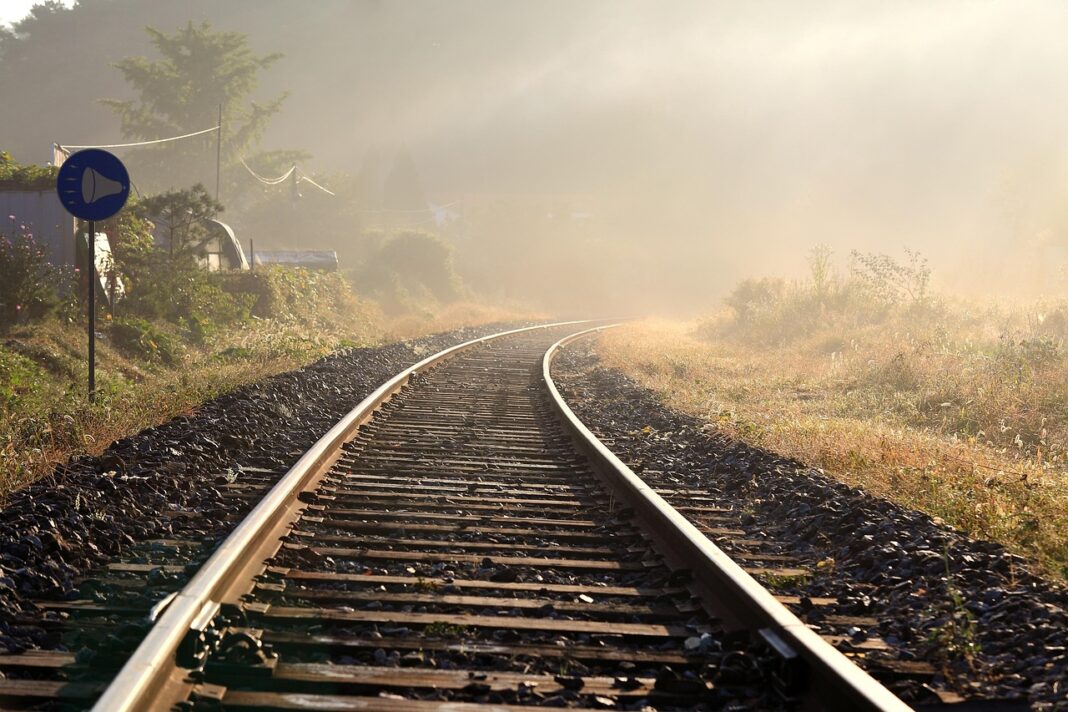Author: Robert Břešťan, HlídacíPes.org
COMMENTARY. A burning warehouse, a torched bus depot or a shopping-centre fire – people can still, just about, file that under the peacetime heading of “these things happen”. The sense of normality is seriously undermined, of course, when it turns out that many such incidents across the EU have been provably orchestrated by people hired by the Kremlin. But when someone blows railway tracks into the air, that’s something else entirely. That’s what war actually feels like.
Even though living eyewitnesses are dwindling, almost everyone can picture the scene from films or books about the Second World War: partisans or special forces creeping up in the dark, planting explosives on the rails, then ripping apart a section of track, a bridge – or an entire train.
During the war, railway sabotage was commonplace. The Protectorate of Bohemia and Moravia was no exception; Czech tracks formed a vital transit artery for supplying the German war machine.
The weekend explosion on a Polish railway line between Warsaw and Lublin inevitably brought those images rushing back – only with the heroic and villainous roles completely reversed.
Surely not us, surely not sabotage…
This is not something we expected to see in neighbouring Poland, at a time when we still like to tell ourselves we’re living in peace – or that the war in Ukraine somehow doesn’t really concern us. This sabotage (or, more accurately, terrorist) attack confirms that it very much does.
Polish authorities immediately linked the incident to Russia and, specifically, to the GRU military intelligence service – the same outfit responsible for the 2014 explosions at Vrbětice in Czechia. Prime Minister Donald Tusk said two individuals holding Ukrainian citizenship but working for Russian services are suspected of carrying out the attack. According to Tusk, the perpetrators fled to Belarus immediately afterwards.
There will, of course, be the usual chorus (and the comments duly appeared online within minutes) claiming “the Russians definitely weren’t behind this”, especially since the Poles themselves pointed to people carrying Ukrainian passports.
The Kremlin, predictably, rushed out its favourite line about “Russophobia” and insisted that Russia is not carrying out any acts of sabotage in Europe. One is almost tempted to add: ha ha.
Regardless of the perpetrators’ nationality, there is no doubt that this is a direct consequence – a side-effect – of the war Russia launched against Ukraine.
Russia has been proven, according to the findings of numerous Western intelligence agencies (and if anyone trusts Kremlin propagandists more than their own security services, they are suffering from a clear moral defect), to be actively recruiting assassins, attackers and saboteurs across the continent. Czechia has already experienced it first-hand.
This is what war looks like, too
The Vrbětice ammunition-depot explosions were bad enough, and under slightly different circumstances Prague could have seen dozens of deaths from the planned arson attack on the cinema in the Flora shopping centre. But a direct attack on the railway network? That, mercifully, we have so far been spared.
Apologies – we have had one. A pensioner named Balda, driven half-mad by the hate-filled rants of the Czech far-right SPD party and its leader Tomio Okamura against refugees, sent threatening letters and twice felled tree trunks across the tracks. He became the first person in Czechia ever convicted of a terrorist attack.
The Polish case is harsher, larger in scale and far more professionally organised. The damaged line is used, among other things, used to transport weapons and supplies to Ukraine, but it also carries ordinary civilian trains full of passengers. Around 115 trains pass through every day. It is little short of a miracle that no one was hurt (a train carrying 475 passengers was brought to an emergency stop just in front of the destroyed section).
This is yet another message – made all the more comprehensible by the weight of history – to those who still refuse to see it:
This is what Russian war looks like. Even when, for now, the shooting is still only happening in Ukraine.

